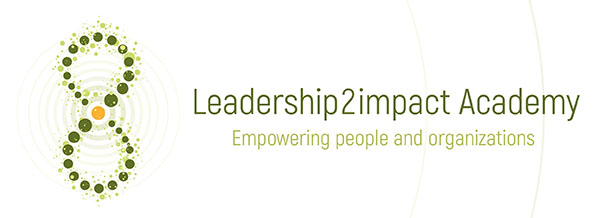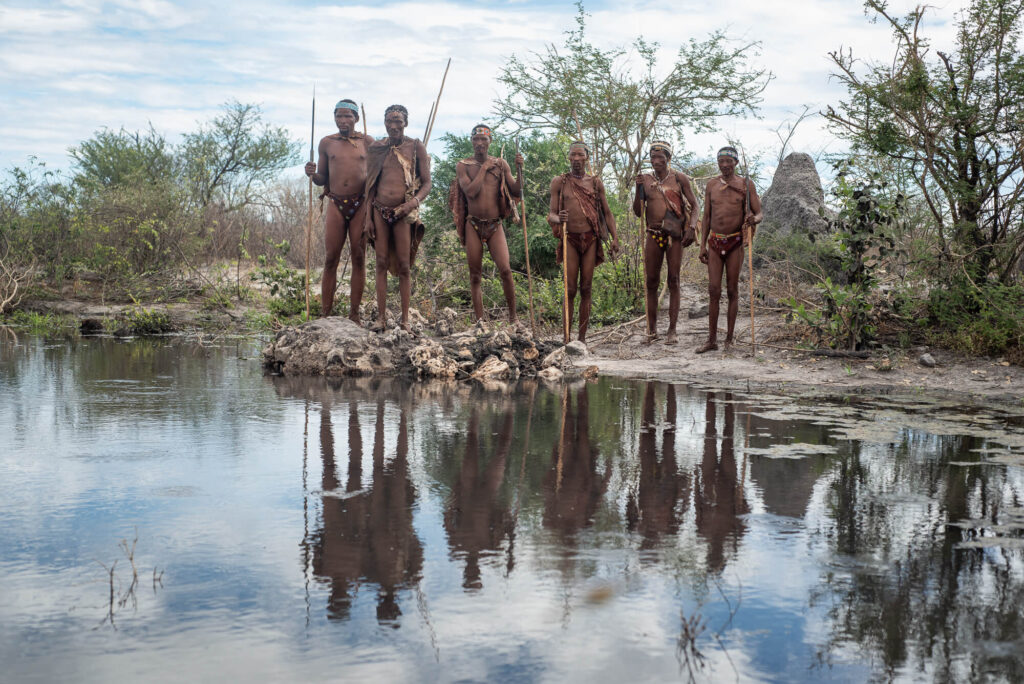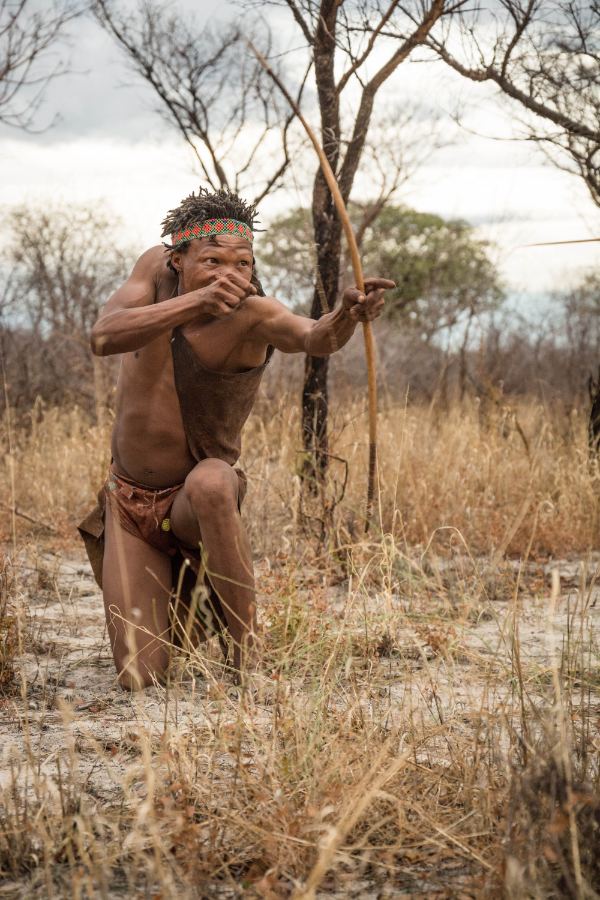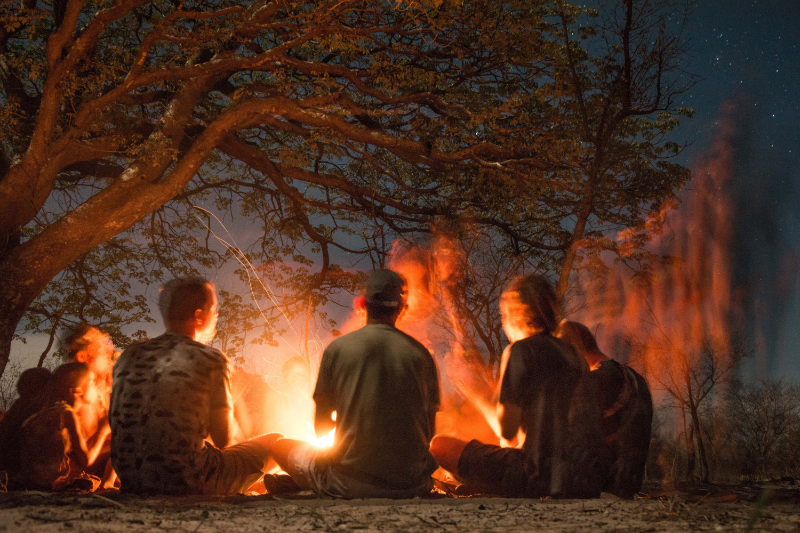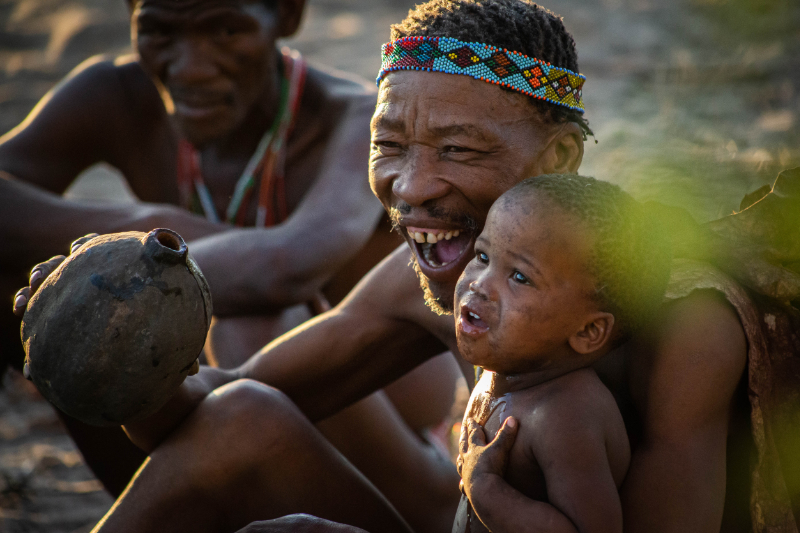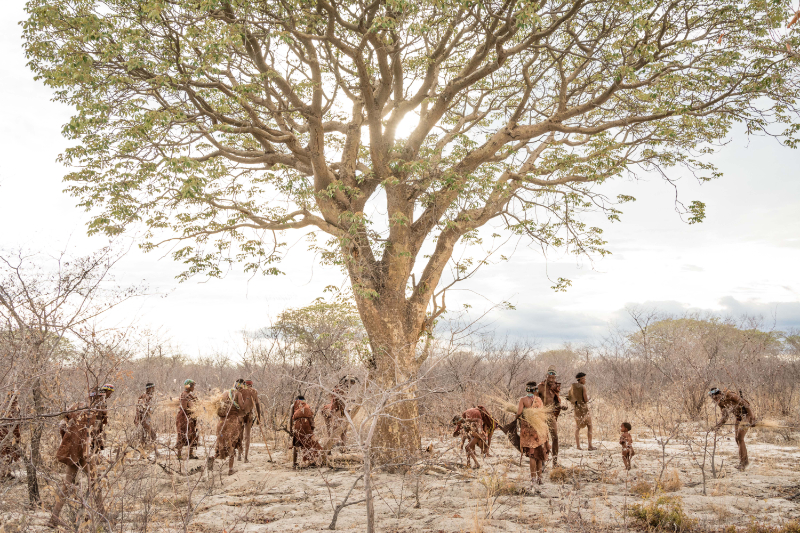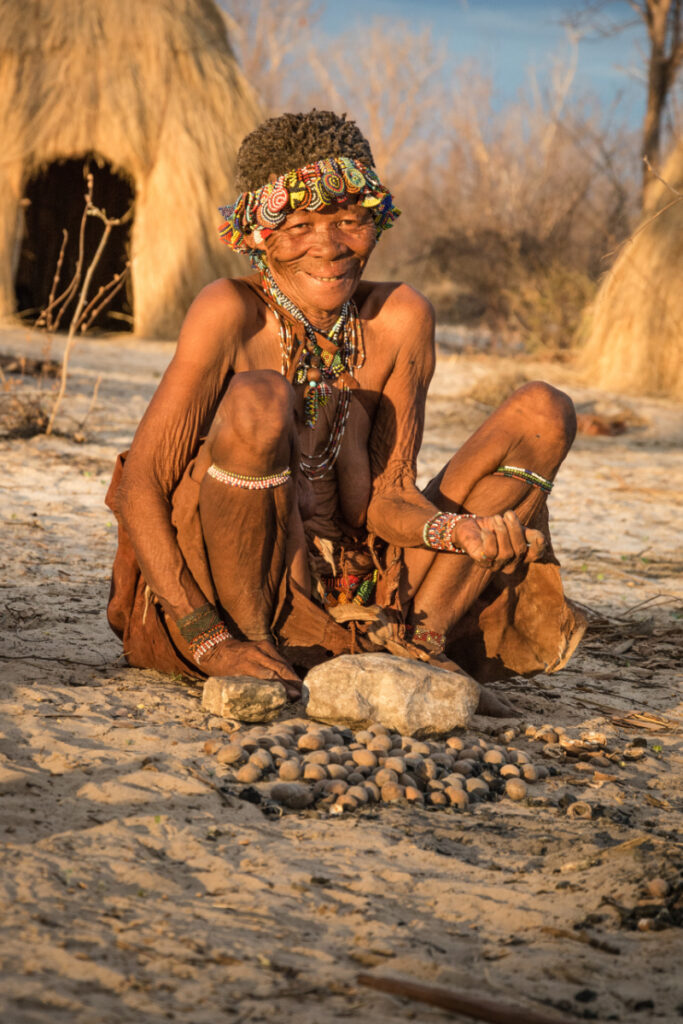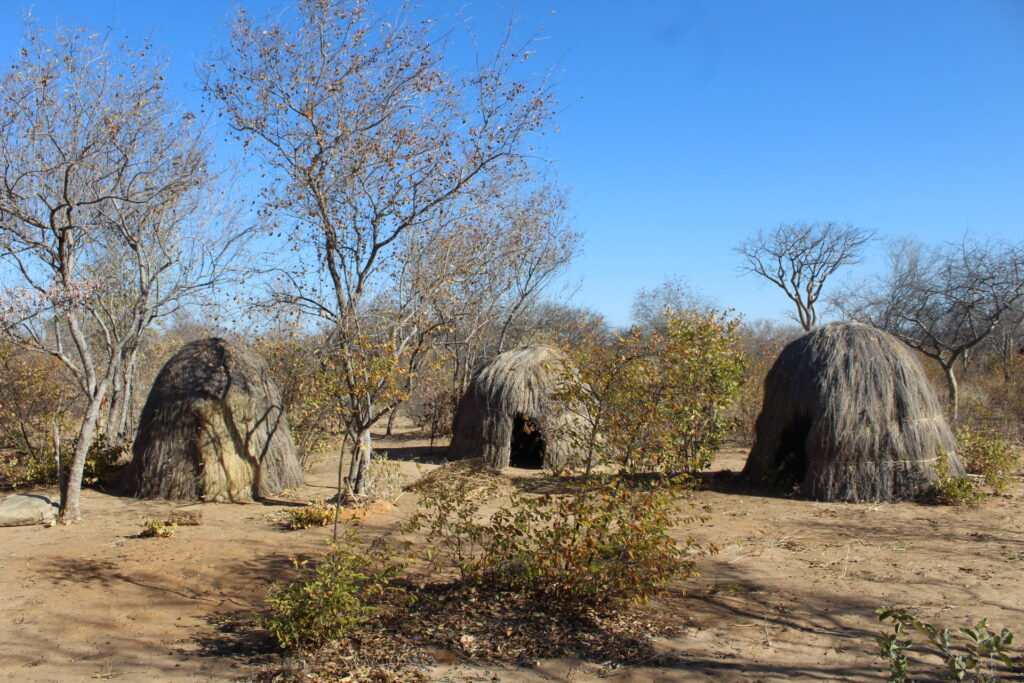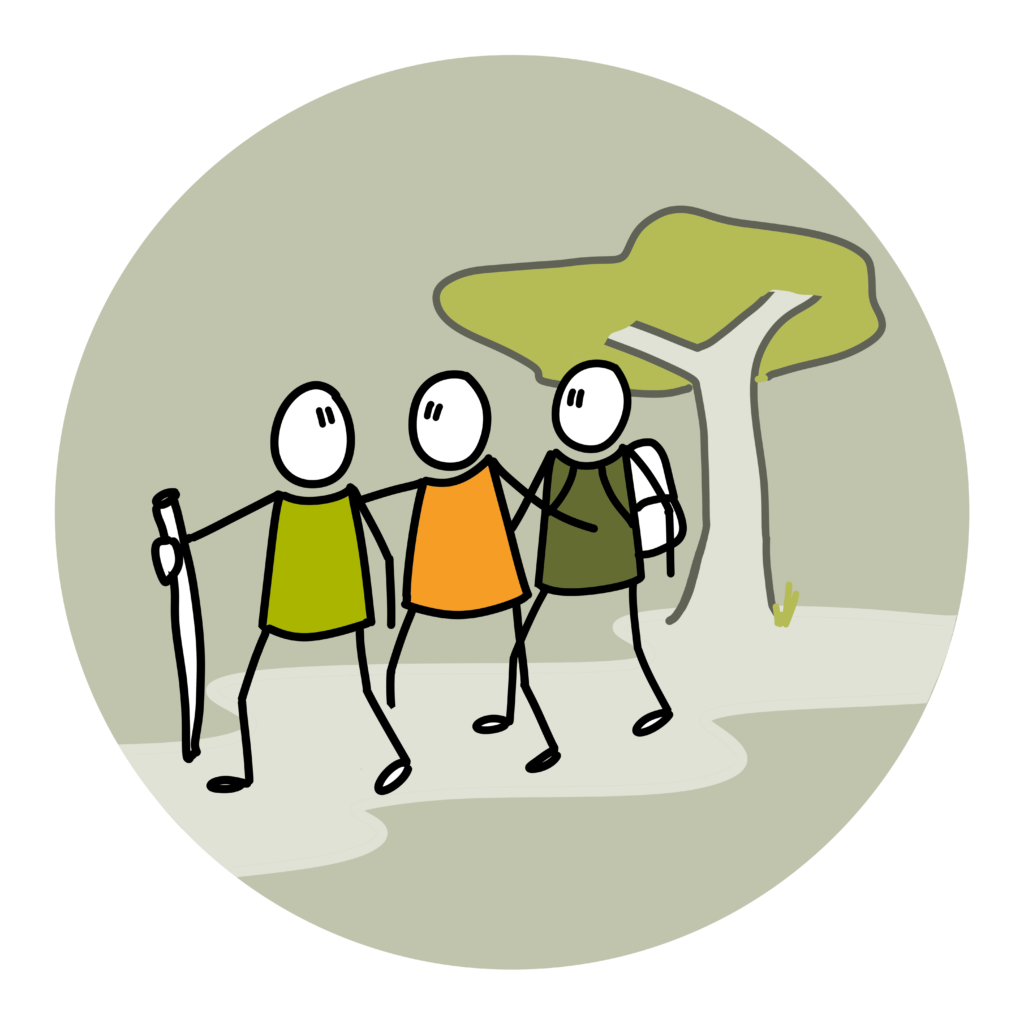
For a time far longer than the era of modern humans, we lived as hunter-gatherers. In many ways, we thrived in that lifestyle. While we can’t return to those times, there is plenty we can learn from how things were done then and apply it to our lives now. It is about tapping into ancient wisdom, rediscovering it within yourself, and letting it guide you on your journey through life.
We warmly welcome you on an immerse experience into the land and culture of the Ju/’hoansi San together with a small group of like-minded people. You will experience a challenging, remote but worthwhile exploration that takes you on a journey of self discovery gaining invaluable lessons from the Ju/’hoansi when you join them in their ancestral territory. Your steps will lead you into the untouched beauty of what is considered to be one of the most pristine wilderness areas in Africa, the Kalahari Desert. This area which is home to elephants and many species of antelopes, big cats, birds and reptiles is also the home of the Ju/’hoansi.
The Ju/’hoansi possess a natural self-awareness that extends to themselves, their environment and you. Synergy is a key element. This inherent self-awareness lays the foundation for self-leadership. Mastering this skill sets the stage for leading others effectively.
Perspectives on Leadership from the Ju/'Hoansi
The Ju/’hoansi have no formal authority figure or chief but govern themselves by group consensus. Disputes are resolved through discussions where all involved have a chance to make their thoughts heard until some agreement is reached. Certain individuals may assume leadership in specific spheres in which they excel, such as hunting or healing rituals, but they cannot achieve positions of general influence or power. Leadership among the Ju/’hoansi is kept for those who have lived within the group for a long time, have achieved a respectable age and are of good character. The San are equal, sharing meat, tobacco, and possessions with each other through family connections.
Your hosts: the Ju/'Hoansi
The experience is a wilderness, cultural and leadership ‘immersion’ experience, incorporating an independent Ju/’hoansi San Community.
The Ju/’hoansi are representatives of one of the three main San language groups in Southern Africa. The San are extremely diverse and there are over 33 individual dialects comprising these three main San language groups. Genetically the Ju/’hoansi are amongst the purest of San lineages.
Although this community lives on the fringes of a cash economy they are, unlike the vast majority of San in Botswana today, not confined to any developed settlement, nor do they live together with any other ethnic groups. In contrast to the settled San populations (who are dependent on Government welfare support and live in overgrazed areas), the community derives most of its food from traditional subsistence practices and actively uses its original territory, which is still ecologically intact.
This affords a level of authenticity and experiential learning associated with a lifestyle that is unique.
As far as San cultural experiences are concerned this is unavailable anywhere else in Botswana!
Embark on this Journey of Exploration, Discovery and Transformation
Our ‘Walk with the San’ hunter-gatherer leadership experience offers a unique chance to explore Africa’s wilderness. Each step, each moment with the San, and simply being in this wild space fosters self-discovery and personal growth. Unlock the secrets of leadership as you walk alongside the Ju/’hoansi, immersing yourself in their ancient wisdom and timeless traditions.
Join us as we explore the untamed beauty of the land, uncovering hidden treasures and forging deep connections with nature and community. Let the rhythm of the wild guide you as you navigate through vast plains and dense forests, encountering challenges that will test your limits and ignite your spirit of adventure. Discover the true essence of (self-)leadership as you learn from the guardians of ancient wisdom, the Ju/’hoansi. You will gain a deeper understanding of yourself and your role in the world, emerging transformed and empowered to lead with purpose and compassion. Join us on this truly extraordinary journey and awaken the leader within you.
To optimise the quality and exclusivity of this experience and to ensure its long term environmental and cultural sustainability, only a few excursions are offered per year.
The Leadership2Impact Academy is offering this exceedingly rare opportunity in partnership with Spirited Adventures.
the group
The groups consists of 5 similarly driven individuals.
Whether you are an entrepreneur, a professional, or a manager with (exceptional) potential, you have likely reached a point in your life where experience and wisdom have left their mark. Each of you carries dreams and scars. The guides are there to support you both through the external challenges of the desert and the inner journey of self-discovery.
What unites you all is a deep yearning for inspiration and a commitment to living life to its fullest. You are all receptive to reflection, eager to share, ready to offer mutual support, and willing to confront the challenges your ego may present.
“Your personality creates your personal reality, to create a new reality, you have to change your personality” [Joe Dispenza]
What can you experience?
It is difficult to explain what you are going to experience… you can’t explain how an orange tastes… you have to experience and taste it. Just like this adventure of exploring, discovering and transforming that is as real as it is metaphorical, because you will be talking, listening and sensing whilst walking with the Ju/’hoansi. Although you are traveling as a group, the walk is an individual personal journey. You will reflect upon yourself, explore who you are and who you have become. You will ask yourself meaningful, challenging questions like:
- Am I truly living in alignment with my deepest values and aspirations, or have I settled for what feels comfortable and safe?
- In what ways have my experiences, choices, and the people I have encountered shaped the person I am today?
- As I reflect on my journey, do I still resonate with the person I have become, or do I feel a disconnection between my current self and my ideal self?
- Can I distinguish between the aspects of my identity that are a genuine expression of my core self and those that have been molded by external expectations and societal norms?
- How do my authentic self and conditioned responses manifest in my professional endeavors and personal relationships, influencing my ambitions and the sources of my inspiration?
- Is the path I am currently on a true reflection of my inner calling and purpose, or am I walking a route charted by others’ expectations or my own fears and doubts?
- How do I feel when walking alongside a San master of the natural environment? And what does this reveal about my judgments of others?
- How does spending time with the San influence my perspective on how human beings use and abuse our natural environment?
The purpose of this journey is a ‘natural reset’. You will be off grid, stripped of unnatural stimuli and daily distractions.
You will be without phone signal, wifi and watch!
In the company of the Ju/’hoansi we create a setting to leave everyday issues behind us.We sometimes forget that we are a creature of nature and not some kind of technological emotionless robot. We are nature and you will discover the simplicity of the outdoors and the workings of nature with the Ju/’hoansi as your guide to your ‘reset’.
Every day you will get new insights from being in nature, with questions, refections and dialogue with the group. It will be something completely different from your usual work week. Through your participation in this intense process you will emerge more confident, refocused, re-inspired and with a range of new strategies for planning and dealing with the next stage on your journey.
It is not a safari
The emphasis of the walk is to facilitate your experience of the natural synergies of the Ju/’hoansi’s closely-knit society and their deep connection with the natural ecosystem that has sustained them for many thousands of years. Typically, there is much flexibility, opportunism and unpredictability in the San led activities that you will experience. All aspects of the walk are closely facilitated by Arthur and Peter and the staff for educational and safety reasons and to ensure culturally and environmentally sensitive operations.
The walk is a non-luxury, experience-based activity. Unlike conventional camping and mobile safaris, artificial materials and structures are kept to an absolute minimum and the camp is comprised of natural materials and structures sourced and made by the Ju/’hoansi. This helps to liberate you from the distractions of western materialism and heightens awareness of the natural environment.
The vehicles used to get you to your camp remain stationary for the duration of your time in the bush. They are a disturbance factor and in keeping with our low-impact philosophy, no game-drive tracks have been developed into the surrounding area which can only be explored on foot.
We emphasise the importance of participation, learning and experiencing rather than focusing on how the Ju/’hoansi look. Therefore selective, respectful photography is essential. It is much more about creating meaningful personal experiences than it is about getting the “perfect shot”. When not participating in the walk, the community members, who are based in very small nearby villages normally wear a mixture of traditional and western clothing. However for the walk it is their choice to wear only traditional attire, which they are proud to showcase.
practical information
The guides facilitate both the journey across the plain and bush as well as the inner journey for each participant.
Arthur Albertson – The Ju/’hoansi community’s tourism enterprise partner and humanitarian support provider (since 2009) and more recently also their conservation program partner (since 2016, under Kalahari Wildlands Trust). Arthur’s work with this community however dates as far back to 1999, when he first initiated his efforts to protect their land by mapping their traditional territories. Arthur is a Botswana based conservationist and ecologist, specializing in San territorial land mapping and community based resource management since 1997 and is an expert on migratory wildlife and the Ju/’hoansi and other Botswana San. Through their NGO Kalahari Wildlands Trust, Arthur and his wife Sandi are dedicated to helping the Ju/’hoansi to protected their land, rehabilitate migratory wildlife populations and develop sustainable livelihood incomes to empower the San. He plays a lead role as a guide facilitating the interaction with the community and is responsible for the logistical operations.
Peter Henssen – With over 35 years of experience as a life and management coach and trainer, Peter offers a unique blend of professional expertise and personal insight to guide one’s inner journey. His background spans from a former professional military career and corporate management to management consulting and lecturing at Rotterdam University of Applied Sciences. For the past six years, he has been immersed in the natural beauty of Botswana, where he continues to inspire and develop leaders. He is a firm believer and promoter of living authentically, naturally, and utilizing one’s innate talents and gifts. His approach integrates theoretical knowledge with practical, hands-on experience, creating an engaging learning environment where knowledge is not only absorbed but also immediately applicable.
Day 1 (August 20, 2024)
When you arrive at Maun International Airport, you will be greeted by the Leadership2Impact Academy team. You will have an opportunity to make calls home and attend to any necessary tasks before our departure.
For the initial two nights, accommodation will be provided at our Phazama Farm in shared chalets. The journey from the airport to the farm takes approximately 30 to 40 minutes by a 4×4 vehicle. Upon arrival, you will be escorted to your chalet to settle in before dinner.
Dinner at Phazama Farm
Day 2 (August 21, 2024)
We will review the program for the upcoming days, ensure your equipment is in order, and get you ready for your journey with and among the Ju/’hoansi San.
Breakfast, Lunch and Dinner at Phazama Farm
Day 3 (August 22, 2024)
After breakfast, you will be prepared for your journey to the Ju/’hoansi community, leaving the civilized world behind. Your personal belongings will be loaded onto a 4X4 safari vehicle, and if needed, any last-minute purchases can be made in Maun. We will embark on a 6 to 7-hour drive to Kagusi Camp, with lunch provided en route.
Upon arrival at around 15:00, you will receive a warm welcome from the team at Kagusi Camp. We will conduct a camp orientation, review safety and sustainability protocols, and settle in. You will be staying in one of the six traditional Ju/’hoansi huts, each accommodating up to two people. You will gain insight into the San community, their challenges, and how the project contributes to the protection of their land, livelihoods, and culture.
Dinner at Kagusi Camp.
Day 4 to 7 (4 full activity days) (August 23-26, 2024)
Each day will commence with coffee/tea and a light breakfast. You will assemble your lightweight day pack, including personal water and snacks, in preparation for the day’s activities. The community members will join you at the camp.
Morning activities may include a walk or in-camp activities at a nearby gathering camp. Lunch will be followed by rest and afternoon activities. Alternatively, full-day outings may be planned depending on the community’s gathering and hunting plans.
If circumstances permit, there may be an opportunity for an extended two-day walk into more remote wilderness territory to the north. The objective of this excursion is to locate and track migratory animals. This experience will involve sleeping under the stars with Ju/’hoansi hunters around an open fire, with food carried by each participant.
Evening meals will be served at Kagusi Camp, followed by fireside activities at the community’s camp, which may include music and a healing dance.
Day 7 (August 26, 2024)
Following morning coffee/tea and a light breakfast, you will have the chance to purchase crafts, take final photographs, and bid farewell to the community.
We will then journey back together to Phazama Farm, pausing for lunch along the way. You will arrive at the chalets in the afternoon.
In the evening, we will gather for dinner and a campfire, sharing our experiences from the journey.
Day 8 (August 27, 2024)
A whole day at Phazama Farm for relaxation, reflection, and assimilating the experience before returning home.
Breakfast, Lunch and Dinner at Phazama Farm
Day 9 (August 28, 2024)
After breakfast you have time for packing, then we will drive to the airport to check in. Lunch in Maun and if you wish you can buy some souvenirs.
We say farewell to each other at the airport.
The experience takes place from August 20 – August 29, 2024 (9 days – 8 nights).
The first and the last two nights you will stay at our Phazama Farm.
The four nights in between will be spend with the San.
The intake process before the (self) leadership experience enhances safety, effectiveness, and the overall quality of the program, leading to a more meaningful and successful leadership development experience. It is not for everyone, and we want to be sure that the mindset and commitment is there.
What we assess during the intake is:
- Assessment of Physical and Mental Readiness:
- Health Check: Check on your physical health, ensuring you are fit for the challenges you will face. This includes checking for any medical conditions that could pose risks.
- Mental Preparedness: It is to establish your mental resilience and readiness to handle the psychological stresses of a wilderness environment.
- Personal Experience:
- Tailored Programs: Understanding your backgrounds, skills, and goals allows us to customize the leadership experience to better suit the group’s needs and objectives.
- Skill Assessment: Identifying your current skill levels in areas such as navigation, survival techniques, and teamwork. You don’t need survival skills, it is just to identify who has which skills if they become necessary.
- Safety and Risk Management:
- Emergency Planning: Gathering detailed information about you enables better preparation for emergencies, including having the necessary medical supplies and knowing who might require special attention.
- Risk Assessment: Understanding your experience levels and limitations helps in planning routes and activities that are safe yet challenging.
- Setting Expectations:
- Clarifying Objectives: The intake process allows us also to communicate the goals, rules, and expectations of the program clearly, helping to align your expectations and motivations.
- Commitment and Preparedness: It ensures that you understand the commitment required and are mentally and physically prepared for the experience, leading to better engagement and outcomes.
- Building Rapport:
- Initial Bonding: Early interactions during the intake process can help build initial rapport between us and between the other participants and facilitators, fostering a sense of community and teamwork from the start.
- Logistical Preparation:
- Equipment Check: Ensuring that you have the necessary gear and know how to use it can prevent issues during the trip.
- Nutritional Planning: Gathering dietary requirements and preferences ensures that food supplies are adequate and appropriate.
We understand that transitioning back to daily life after an immersive wilderness leadership experience can be challenging. That is why our aftercare support is designed to help you smoothly integrate their newfound insights and experiences into your everyday routines.
Our personalized aftercare support includes:
- Customized Plans: With each participant we make a tailored aftercare plan that aligns with their personal preferences and needs.
- Journaling and Reflection: We encourage ongoing journaling and reflection to help process emotions, insights, and challenges encountered post-retreat. This practice fosters continuous personal growth and self-awareness.
- Coaching and Mentoring: Participants have access to professional coaching and mentoring to provide guidance and support as they navigate their post-retreat journey.
- Peer Groups: We facilitate the creation of peer groups, offering a supportive community where participants can share experiences, challenges, and successes.
Our goal is to ensure that the transformative experiences gained in the wilderness are effectively integrated into participants’ daily lives, leading to lasting personal and professional growth.
The pricing structure is based on the 9-day (8-night) excursion. You will stay with the Ju/’hoansi 5 days (4 nights). The first two and the last two nights you will stay at the Phazama Farm.
The investment per participant is: € 6870 (0% VAT)
The activity is generally restricted to the period from the 1st of March to end of August, to avoid times of the year most affected by high temperatures and heavy rains, which may cause discomfort and make access by vehicle problematic.
The community receives fair prices for their efforts and work. Refer to funding for more details on how the money is spent.
Inclusions:
1) All activities facilitated by Leadership2impact Academy and Arthur Albertson, accompanied by a licensed professional guide, assistant cook/camp hand, and a translator.
2) Community members essentially lead all the cultural and bushwalking activities showcasing Ju/’hoansi land, natural resources, and culture.
3) Okavango Air Rescue membership.
4) Stay at Phazama Farm in a shared chalet and in a shared traditional hut with all equipment including sleeping mats, sleeping bags and pillows.
5) All catering. Food is wholesome and simple, planned for good nutrition and sustained energy (it is an alcohol free experience).
6) Transfers to Phazama Farm/Camp from Maun and return.
Exclusions:
1) Transfers to and from your home to Maun.
2) Personal medical and travel insurance.
3) Personal backpacks and daypacks.
Note:
1) Once deposits have been paid, you will be required to:
– Sign an indemnity form and arrange travel insurance for medical emergencies.
– Sign a protocols form covering the environmental and cultural sustainability requirements. Note that a limited, non-invasive and respectful approach to photographing community members is required.
– Fill in forms related to dietary requirements, important medical history and travel / medical insurance information.
2) Payment terms:
– Bookings are subject to available time slots and are on a first come, first served basis.
– For bookings made more than 90 days in advance of excursions, a non-refundable deposit of 30% is payable to secure the booking, with 70% payable 90 days before the excursion start date.
– For bookings made less than 90 days in advance of an excursion, full upfront payment (including non-refundable 30%) is required to secure the booking.
– Cancellations: If cancellation is more than 90 days from the excursion start
date, only the 30% non-refundable deposit is forfeited and any other balance paid is fully refunded.
– If cancellation is between 90 and 60 days from excursion start date, the 30% deposit and 25% of any other balance paid is forfeited.
– If cancellation is between 60 and 30 days from excursion start date, the 30% deposit and 50% of any balance paid is forfeited.
– If cancellation is within 30 days of excursion start date, the 30% deposit and 100% of any balance paid is forfeited.
Under exceptional circumstances (e.g. illness) we may be able to postpone excursions to a later date, pending suitability of alternative dates to the parties concerned.
The walk is a major contributor to the livelihoods of the community in a remote area where there are no other employment opportunities. Each community participant is paid individually and also earns from direct craft sales to guests. The income provides vital supplementation to their subsistence way of life, enabling them to fully sustain themselves in this remote, undeveloped area and it enables them to support many other dependents. The walk also generates funds to enable the community to sustain its company, its tourism license and campsite and its land lease. The walk incentivizes the preservation and transfer of cultural knowledge and skills which otherwise face extinction and by maintaining an operational presence the community is able to assert their land and occupancy rights to their ancestral land, thereby helping to protect it from land grabs and invasion by cattle ranchers and poachers. By ensuring low-impact sustainable use of this environment, it also helps to preserve their natural resources such as the wild plant foods they depend on, and it helps to rehabilitate migratory wildlife populations. Income is also directed to Kalahari Wildlands Trust, of which the community are direct beneficiaries and also earn vital income through employment as team members in wildlife patrols to collect wildlife spoor data and keep out poachers.
As follows is a breakdown of how the funds paid over by the participants for a booking, are used:
35% is allocated towards the community, in the form of:
– Wages and in-kind payments earned by up to 30 community members (maintenance; excursion preparations and time with participants; other support services earnings);
– Community’s company expenses (annual campsite licensing fees, annual land rental fees, accounting & secretarial costs etc.);
– Tuition and training for skills development purposes.
– A lump sum amount for each booked excursion, which accrues in their bank account and is used for communal purposes (this also helps to foster financial responsibility and a sense of achievement).
55% is allocated towards the excursion costs and the management partner, in the form of:
– Transportation.
– Office and administration costs.
– Management and administration assistance to Community’s company.
– Marketing and liaison with clients and agents.
– Professional guides and other support staff wages.
– Facilitation of excursions and related management and preparations;
– Food and other consumables for participants, staff and community.
– Equipment and depreciation.
– Satellite communications, air rescue subscriptions and insurances.
– Cost recovery and repayment of funds loaned for set-up and licensing phase and related community support expenditure.
10% is donated towards Kalahari Wildlands Trust to support its conservation work in the area, which includes but is not limited to:
– Maintenance of remote wildlife boreholes for rehabilitating migratory wildlife populations in the area.
– Employment of community members to undertake wildlife monitoring and anti-poaching.
– Cultural mapping and engagement of stakeholders to counteract land grabs and other threats to Ju/hoansi land and natural resources including wildlife.
– Oral history recording and conservation.
– Water supply solutions including portable rainwater harvesting.
The Kagusi Wilderness Campsite operates on a strict “carry-in-carry-out” policy. We bring in everything needed for each stay and remove everything on departure, including all non-biodegradable waste.
- Artificial materials are limited so the camp blends in with the natural habitat and so that participants can ‘disconnect’ from civilization. Vehicles remain stationary at the base camp and there are no vehicle tracks apart from the small access track. The lack of disturbance by vehicles and aircraft makes for a genuine wilderness experience that is unobtainable elsewhere in Botswana.
- Kagusi is comprised of biodegradable structures made by the Ju/’hoansi using wooden poles and grass harvested from the area: in the centre under a large Mongongo nut tree is a communal grass–thatched shade roof structure, with a. grass “kitchen hut” alongside it for storage. Surrounding these are smaller traditional huts (for optional guest sleeping), a shaded parking bay, and separate grass-walled shower and toilet enclosures.
- The traditional gathering camps used by the community are inaccessible to vehicles and must be walked to: they comprise traditional grass huts and also made by the Ju/’hoansi from natural materials. As this is a semi-desert without surface water for most of the year, we practice water conservation at all times, and there is no running water available.
- Supplies are limited to what we can bring in by vehicle, or by donkey-back from the Community’s solar borehole, or by extraction from the unique portable rain harvesters we’ve invented and installed in the area. These available water supplies are safe to drink and we do not bring in purified bottled water due to their effect in depleting the body of essential minerals.
- For ablutions: you can have a “bucket” shower containing a rationed amount of heated water, set up in the shower enclosure. We limit showering to once every two days due to limited supplies. A portable chemical toilet is set up for use in camp and then removed on departure, or alternatively you also have access to a long drop toilet a short distance from camp. While on walking activities, you can use the “dig a hole and burn your toilet paper”.
- Sleeping arrangements are in the form of traditional huts, supplied with sleeping mats, pillows and sleeping bags. The traditional huts are generally cool and there are enough available to accommodate up to 8 guests on a shared basis (2 per hut).
- The food prepared is simple, wholesome and nutritious. Natural high-energy snacks are also provided for walking activities. As part of the experience participants can also supplement their food intake with traditional Ju/’hoansi bushfoods collected during the daily gathering activities.
- Strict protocols apply to engaging with the Community, to maintain mutual privacy and respect and minimize potential socio-cultural impacts. E.g. No consumption of alcohol in their vicinity; Respectful photography; No handouts of cash or gifts; Interactions by prior arrangement only.
- Due to the participatory nature, some physical activity is involved but it is generally non-strenuous and within the capability of healthy participants. Prior camping experience is not mandatory, only a willingness to be adventurous. Food preparations and related cleaning duties are preformed by the staff, but they may need to occasionally ask participants to assist with certain light tasks.
- Participants can choose the level at which they wish to participate: some may prefer only short duration walks whereas the more energetic may prefer to accompany other community members on extended foraging expeditions into remote parts of their territory. Opting out of activities and staying in camp is perfectly acceptable too.
- Free-ranging wildlife in the general area include species such as elephant, eland, gemsbok, kudu, leopard and hyena. They occur in low densities and don’t pose a significant hazard to participants on walks. The Ju/’hoansi, being extremely observant and experienced in the bush, always tend to spot any potential hazards long before participants notice them.
- Due to the low human population and lack of surface water, mosquitoes are inactive in the dry season and those that participants may encounter during the rainy season are malaria-free. Mosquito nets are provided in the traditional huts and the portable tents have built-in mosquito nets.
- In terms of safety: the manager and an experienced licensed guide will be in attendance for the duration, the staff have up-to-date first aid certificates and first aid kits, and there is access to 24h emergency helicopter rescue services (based in Maun). A helicopter landing area located 1,7km from Kagusi can be reached by the rescue services within 2 hours of being alerted. Communications are by way of handheld satellite phones kept fully charged and on standby – one at camp and the other accompanying any guided walks away from the camp.
More information?
We’d love to share more with you! Simply fill out the form below, and we’ll be in touch soon!
Pictures: Devon Jenkins & Kyle de Nobrega
